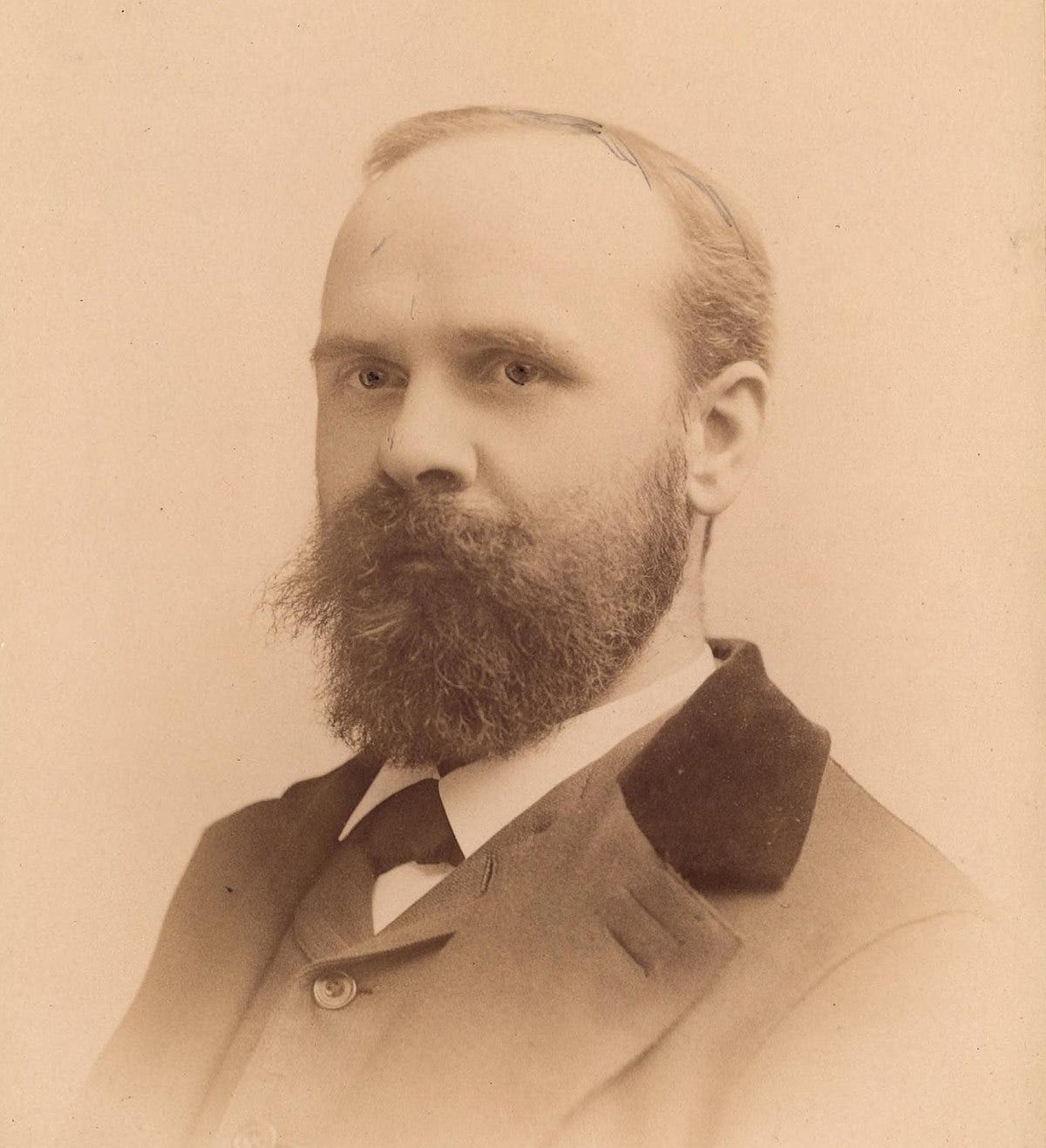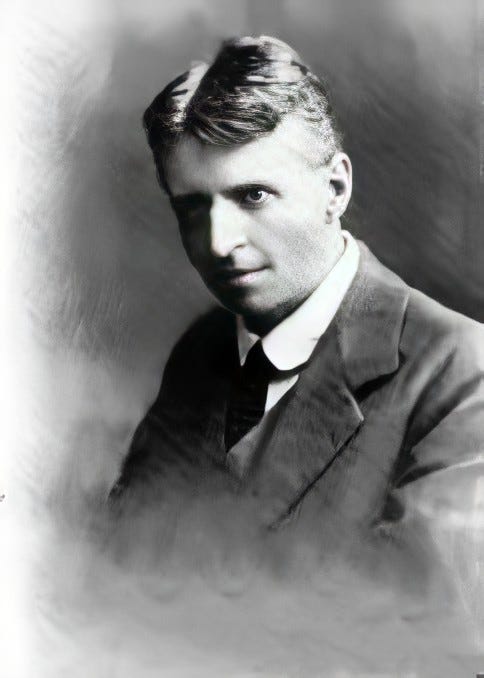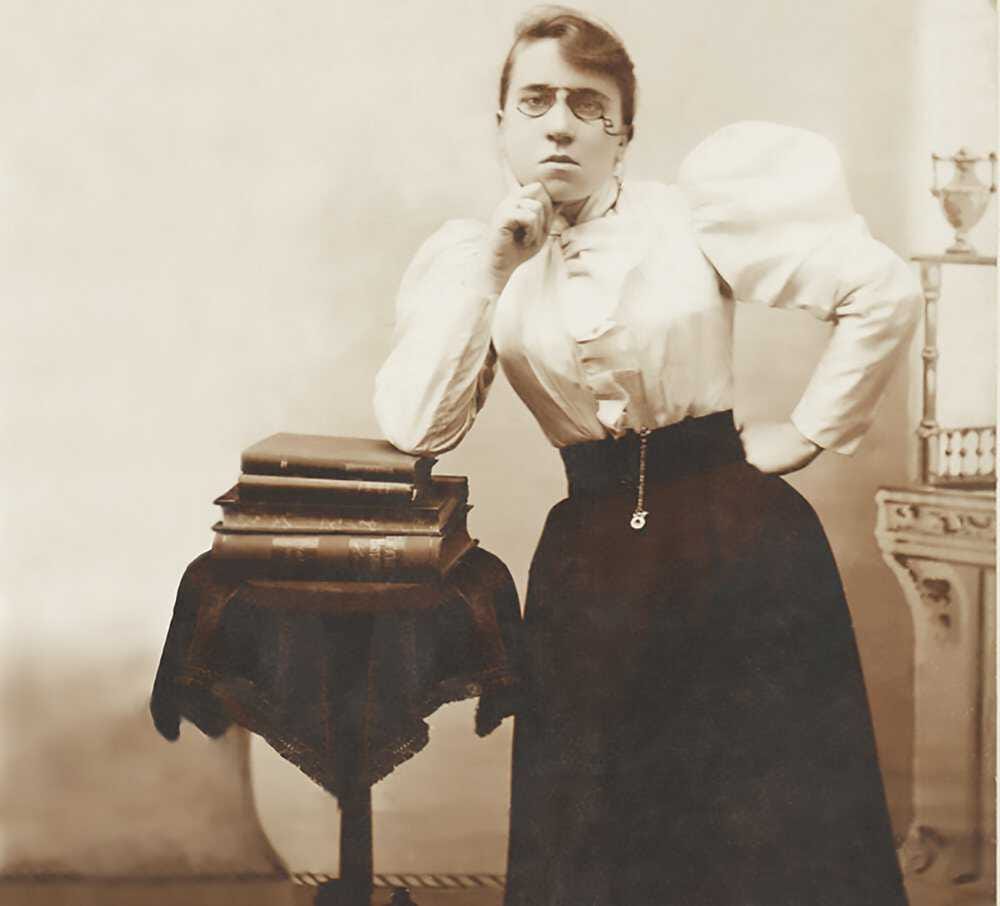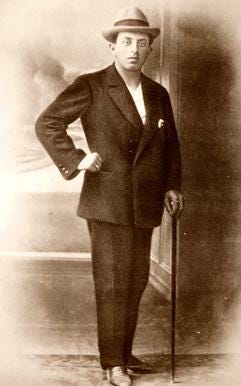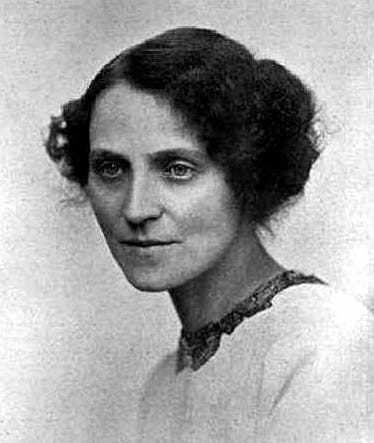“Man, your head is haunted; you have wheels in your head! You imagine great things, and depict to yourself a whole world of gods that has an existence for you, a spirit-realm to which you suppose yourself to be called, an ideal that beckons to you. You have a fixed idea!”
Please feel free to watch the video here:
That’s a quote by Max Stirner, the egoist philosopher who believed the only true freedom was freedom from what he called spooks—those invisible ideas like morality, state authority, religion, and even fixed notions of identity that control our lives. Stirner’s vision was to live purely for your own sake, liberated from all external ideals.
When I was a confused young girl on the spectrum, his ideas set fire to all the bullshit I had accepted to be part of the human condition. For me, personally, Stirner was a massive influence. And today…we’re looking into the minds of others who took Stirner’s egoism and molded it into their own radical visions—from psychoanalytic anarchists to free-market radicals and feminist revolutionaries.
This is Recurring Paradox, and today, we’re exploring some thinkers. Let’s get started.
Benjamin Tucker - Individualist Anarchism
“If the individual has a right to govern himself, all external government is tyranny. Hence the necessity of abolishing the State.”
Benjamin Tucker, a prominent figure in American individualist anarchism, took Stirner’s egoism and applied it to the socio-economic landscape of his time. Tucker’s philosophy centered around the idea that freedom could only be achieved through the elimination of state power and the establishment of a free market. His vision of individualism was deeply intertwined with Stirner’s rejection of imposed moralities and social constructs. He positioned the individual as the ultimate sovereign.
Tucker was an ardent advocate for free markets, believing that voluntary exchange was the cornerstone of a truly liberated society. He critiqued both capitalism and socialism, by arguing that the former, when intertwined with state authority, became a tool of oppression, while the latter imposed its own spooks in the form of collectivism and state control. For Tucker, the ideal society was one where individuals could freely associate, trade, and create without interference from the state or any moral framework that dictated their actions.
His publication, Liberty, became a platform for radical thinkers, where he championed Stirner’s ideas and other libertarian perspectives. Tucker saw the state as the greatest spook of all, a phantom that held power over individuals by promoting the illusion of authority and collective good. He emphasized the importance of self-ownership and the pursuit of one’s own interests as the basis of a just society.
Tucker’s radical individualism also extended to issues of gender and sexuality. He believed in the necessity of personal freedom in all aspects of life, and advocated for sexual liberation and critiquing the moral constraints imposed by society.
In essence, Tucker’s interpretation of Stirner’s egoism is just that. An interpretation. I feel that his essentialization of the individual as well as his advocacy, while ultimately being more than just individualist thought, incorporated some aspects which could not be aligned with Stirner’s perspective.
Otto Gross - Psychoanalytic Anarchism
“If there is one thing I've learned in my short life, it's this: Never repress anything.”
Otto Gross, the wild-eyed psychoanalyst and anarchist, was a man ahead of his time—both in the ways he lived and in how he died. Born into a strict medical family, Gross quickly rejected the conservative ideas of his father, and plunged into the world of Freudian psychoanalysis. But Gross wasn’t interested in simply fixing people. He was obsessed with the liberation of the individual from society’s chains.
Gross believed that societal repression, especially sexual repression, was the root of all psychic suffering. He saw the family unit, organized religion, and traditional morality as instruments of control, keeping the individual from their true potential. Here, Gross was channeling Stirner’s rejection of all spooks—the abstract ideals that imprison our minds and force us into pre-set roles. Gross wanted to destroy these spooks not just theoretically but in real life.
In Gross’s psychoanalysis, the goal wasn’t just to cure neurosis but to break free from society’s demands and realize your true self—your egoist, unchained self. Gross encouraged his patients, many of them bohemians and radicals, to embrace free love and to reject monogamy and bourgeois values. For Gross, sexuality was a vital force of personal liberation.
But Gross’s personal life reflected his philosophy’s extremes. He became addicted to drugs, which led to his alienation from both the psychoanalytic world and the anarchist movements. He died in 1920, estranged from his revolutionary peers, a tragic but nonetheless inspiring figure who lived as he preached: rejecting societal norms. He believed in nothing less than the total psychoanalytic revolution of the mind.
I think it can be said that Stirner’s egoism warns against the power of hedonism as a side effect of rebellion. It is possible that Gross rebelled against his chains so extremely, that it ended up defining his path in life, and therefore, became another spook. In any case, there is nothing negative to be said about a person who lives on their own terms.
Emma Goldman - Revolutionary Egoism
Emma Goldman is often celebrated as one of the great pioneers of anarchism, but her relationship to Stirner’s egoism is just as fascinating. Born in Russia and emigrating to the United States in her teenage years, Goldman became a fiery advocate for anarchist causes—everything from free speech to women’s liberation, birth control, and workers’ rights. But beneath her political activism lay a deeply egoistic belief: the individual must be free from all imposed moral codes. This makes her very unique.
Goldman encountered Stirner’s The Ego and Its Own early in her intellectual journey, and his radical ideas about freedom stuck with her throughout her career. Goldman was particularly drawn to Stirner’s attack on collectivism and moralism. For Goldman, the revolution was not just about dismantling oppressive political structures like the state and capitalism—it was also about freeing the individual from the mental and emotional chains that society imposed.
In her famous essay, The Failure of Christianity, Goldman echoed Stirner's disdain for religion, seeing it as a tool used by the ruling classes to keep individuals docile and obedient. Religion, marriage, patriotism—these were all spooks to Goldman, illusions designed to control the individual. She famously declared: “The most violent element in society is ignorance.” To her, ignorance meant the blind acceptance of spooks that make people submit to authority.
Goldman was also not just an anarchist in theory; she was an egoist in practice. She fiercely defended her right to love whomever she wanted and live as she pleased, even if it meant defying social expectations, laws, and even the anarchist movement itself. She didn’t believe in sacrificing herself for any cause, no matter how noble. Instead, she fought for a world where every individual could freely determine their own path—an ethos that was deeply Stirnerian in its roots. However, even in Goldman’s case, rebellion wasn’t quite taken as seriously as it was by Stirner.
Renzo Novatore - Nihilistic Anarchism
“...only the one who knows and practices the iconoclastic fury of destruction can possess the joy born of freedom, of that unique freedom fertilized by sorrow. I rise up against the reality of the outer world for the triumph of the reality of my inner world. I reject society for the triumph of the I. I reject the stability of every rule, every custom, every morality, for the affirmation of every willful instinct, all free emotionality, every passion and every fantasy. I mock at every duty and every right so I can sing free will. I scorn the future to suffer and enjoy my good and my bad in the present. I despise humanity because it is not my humanity. I hate tyrants and I detest slaves. I don't want and I don't grant solidarity, because I am convinced that it is a new chain, and because I believe with Ibsen that the one who is most alone is the strongest one. This is my Nihilism.”
While Goldman tempered Stirner’s egoism with revolutionary goals, Renzo Novatore took it to its most extreme. A nihilist anarchist and poet, Novatore saw life as an existential war. His entire worldview was one of perpetual rebellion—against the state, against morality, against society, and even against his own comrades in the anarchist movement.
For Novatore, Stirner’s ideas weren’t just a philosophical stance—they were a call to arms. He rejected all forms of social organization, believing that the only true life was one lived in total freedom, outside of all laws and moral codes. He detested the bourgeois world with a passion, viewing it as a cage designed to crush the individual spirit. Like Stirner, he saw every societal structure as a spook, a phantom that people believed in because they feared the chaos of true freedom.
Novatore’s writings dripped with anger and romanticism. He was influenced by the Italian Futurists and their celebration of violence as a form of artistic expression. In his poems, he glorified destruction as a necessary step toward individual liberation. This wasn’t an anarchism for peace and cooperation—it was a destructive approach to self-liberation. To Novatore, egoism meant absolute rejection of any value system that wasn’t self-created.
He lived this philosophy to the fullest, and ultimately became a fugitive outside the law until his death in a firefight with the police.
Dora Marsden - Feminist Egoism
“Causes” are the diversion of the feeble – of those who have lost the power of acting strongly from their own nature. They are for the titillation of the senses of the herd, and a person who can act strongly should shun all Cause-ites and their works. Strong natures, who act out their beliefs in their own person, not realizing that such grounds for actions as Causes proffer are in place only among those who having lost the instinct for action amuse themselves by words, occasionally are fascinated by the jargon, with consequences disastrous in the highest degree to themselves.
Dora Marsden is perhaps the least known of the thinkers on this list, but her contribution to egoist feminism was groundbreaking. Marsden started out as part of the suffragette movement in early 20th-century England, but she soon grew disillusioned with its goals. She realized that simply winning the right to vote wouldn’t free women—it would only bind them to another form of collective identity.
Marsden broke away from mainstream feminism and started her own publication, The Freewoman, which later evolved into The Egoist. In these pages, she argued for a new kind of feminism, one that wasn’t about equality in the traditional sense but about individual self-determination. Like Stirner, Marsden believed that women needed to reject the spooks of societal roles and moral expectations, even if that meant standing alone.
In Marsden’s view, the suffragist movement was just another form of spookery—trying to win approval from the state or society was a distraction from the true goal of self-ownership. She encouraged women to stop trying to become "like men" or fit into any predetermined role. Instead, they should embrace their individuality, their desires, and their uniqueness—without feeling guilty for defying societal expectations.
Through her publications, Marsden gave a platform to modernist writers and thinkers like James Joyce and Ezra Pound, whose works also explored themes of individualism and self-expression.
The Dangers of Rebellion & Stirner’s Approach
In exploring the varied interpretations of Max Stirner's egoism, we find ourselves at a complex intersection of rebellion and egoism. Each thinker we've examined, from Benjamin Tucker's individualist anarchism to Wolfi Landstreicher's modern Stirnerian thought, highlights a unique perspective on the core principle of living for oneself. Yet, this exploration raises a critical question: does rebellion against societal norms and spooks ultimately serve the egoist cause, or can it transform into a new form of spookery itself? And how does one balance that thin line?
So, I guess I just want to end with this: as we navigate this thought and its various interpretations, looking for answers, consulting thinkers outside ourselves…we have to remember to think for ourselves first. Align with our own desire and be accountable for it within ourselves.
Because if we fail to be accountable - in tune with our desires - then rebellion, while a vital expression of egoism, can lead us astray. Really ask yourself what you want. And allow it to exist inside you without trying to control or change it.
I personally believe that true liberation is more than just rejecting external constraints. It’s also understanding them. Empathizing and relating to the external world on the basis of lack of understanding and, above all, cultivating an honest, and nuanced understanding of how our actions, however radical, reverberate within the intersubjective relations that shape our reality.
Ultimately, the journey of egoism is your own. And it really isn't my problem what you do with that. And I wish you all the best.
References:
Tucker, Benjamin. Instead of a Book, by a Man Too Busy to Write One. Benjamin R. Tucker, 1893.
Amazon: https://amzn.to/3Ny9uAK
Read for free: https://theanarchistlibrary.org/library/benjamin-tucker-instead-of-a-book
Gross, Otto. Collected Works: Psychoanalysis and Revolution. Edited by Daniel Gross, Verso, 2002:
Amazon: https://amzn.to/3YfbH9g
Read (some of it) for free: https://theanarchistlibrary.org/category/author/otto-gross
Goldman, Emma. Anarchism and Other Essays. Mother Earth Publishing Association, 1910:
Amazon: https://amzn.to/3C5t1G7
Read for free: https://theanarchistlibrary.org/library/emma-goldman-anarchism-and-other-essays
Goldman, Emma. "The Failure of Christianity." Mother Earth, vol. 2, no. 10, 1913:
Read for free: https://theanarchistlibrary.org/library/emma-goldman-the-failure-of-christianity
Novatore, Renzo. Toward the Creative Nothing. Translated by Wolfi Landstreicher, Ardent Press, 2011:
Amazon: https://amzn.to/3zYddoh
Read for free: https://theanarchistlibrary.org/library/renzo-novatore-toward-the-creative-nothing
Marsden, Dora. Various Writings. 1928:
Amazon: https://amzn.to/3Yzh04P
Read (some of them) for free: https://theanarchistlibrary.org/category/author/dora-marsden




